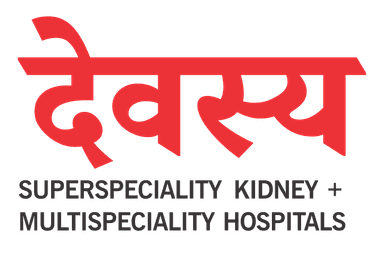Kidney Stone Treatments & Surgery
How can Devasya Kidney & Multi Speciality help you?
Devasya Hospital is renowned for its advanced treatment options for kidney stones, utilizing the latest laser technology and specialized procedures such as RIRS (Retrograde Intrarenal Surgery), PERC (Percutaneous Nephrolithotomy), and Mini PCNL (Minimally Invasive Percutaneous Nephrolithotomy). These cutting-edge techniques enable precise and effective removal of kidney stones with minimal invasiveness. Devasya Hospital's expert urologists and state-of-the-art facilities ensure optimal outcomes and patient satisfaction. For individuals seeking kidney stone treatment, Devasya Hospital is known for providing the best and advanced care options available.
FAQs
Kidney stones can occur due to a variety of causes. One common factor is dehydration, where inadequate fluid intake leads to concentrated urine, providing an environment conducive to stone formation. Dietary factors also play a role, with a high intake of foods rich in oxalates (such as spinach, chocolate, and nuts) or sodium contributing to the formation of kidney stones. Additionally, a family history of kidney stones increases the risk, as there may be a genetic predisposition to stone formation. Certain medical conditions, including urinary tract infections, gout, hyperparathyroidism, and inflammatory bowel disease, can also elevate the likelihood of developing kidney stones. Furthermore, certain medications, such as diuretics or calcium-based antacids, can raise the risk of kidney stone development.
To diagnose kidney stones, healthcare professionals may perform the following tests:
Imaging Tests: These can include X-rays, CT scans, or ultrasounds to visualize the stones and determine their size and location.
Urine Testing: Analyzing a urine sample can help identify any abnormalities, such as the presence of blood, crystals, or infections.
Blood Tests: Blood tests may be conducted to assess kidney function and evaluate levels of substances that contribute to stone formation.
Common symptoms of kidney stones include severe back or side pain (renal colic), blood in the urine (haematuria), frequent urination, cloudy or foul-smelling urine, nausea and vomiting, and fever with chills in the presence of infection.
Early signs of kidney stones may include mild to moderate back or side pain, discomfort in the lower abdomen, subtle changes in urination patterns, and the presence of blood in the urine that may not be visible to the naked eye.
Complications of kidney stones include urinary tract obstruction, urinary tract infections, kidney damage, and an increased risk of recurrent stones.
Preventive measures for kidney stones include staying hydrated, making dietary modifications, ensuring balanced calcium intake, considering medication if needed, and regular follow-ups with healthcare professionals. Consult with your healthcare provider about appropriate calcium-rich foods and potential supplementation if necessary. In some cases, medications may be prescribed to prevent the formation or recurrence of kidney stones, depending on the stone type. Lastly, regular follow-ups and monitoring with healthcare professionals can help identify any risk factors or early signs of stone formation, allowing for timely intervention. It is crucial to consult a healthcare professional for personalized advice based on your individual circumstances.



